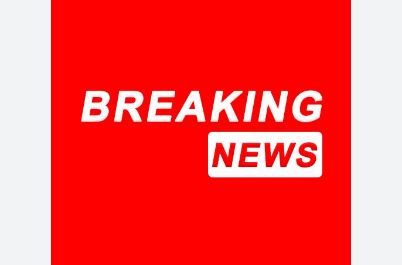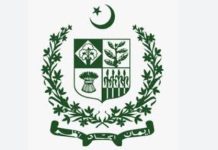ISLAMABAD, DEC 4 /DNA/ – The Silver Jubilee flagship annual sustainable development conference (SDC) of the Sustainable Development Policy Institute (SDPI) on “Sustainable Development in Unusual Times: Building Forward Better” kicks off here from Monday as Southern version of the Economic Forum.
“This year, the SDC which will continue till 8th December is being hosted along-with the Sixth South and South-West Asia (SSWA) Forum on the Sustainable Development Goals (SDGs) in collaboration with the United Nations Economic and Social Commission for Asia and the Pacific (UNESCAP) and the Government of Pakistan. This is our version of the World Economic Forum with human, social, economic and environmental dimensions,” said Dr Abid Qaiyum Suleri, Executive Director of the SDPI while explaining highlights of the conference.
The Federal Minister for Planning, Development, and Special Initiatives, Mr Ahsan Iqbal will inaugurate the conference and the President of Pakistan Dr Arif Alvi will be the chief guest at the closing of the conference. The Under Secretary General of the United Nations, and head of UNESCAP Dr. Armida Salsiah Alisjahbana will be the chief guest. Deputy Planning Minister of Maldives, MoS Finance of Sri Lanka, and Vice Chair Planning Commission Nepal are also coming to Pakistan for this conference.
The Speaker of the National Assembly Raja Pervez Ashraf, Finance Minister Ishaq Dar, Commerce Minister Naveed Qamar, Climate Change Minister Sherry Rahman, Minister for Poverty Alleviation Ms Shazia Marri, Minister of States Aisha Ghuas Pasha, Romina Khurshid, Shaza Khwaja, and former cabinet members Asad Umar, Dr Moeed Yusuf, Dr Sania Nishtar, and Malik Amin Aslam are among the speakers of the conference.
As many as 350 dignitaries/speakers/experts hailing from the United Nations, the Government, Academia, Civil Society, Media, and Private Sector from across the country and 16 other countries will speak in 11 plenary sessions and 35 panels.
Organized annually, both the SDC and the SSWA Forum on SDGs have been facilitating dialogue and deliberations among government officials, civil society, think-tanks, academia and subject experts, the private sector, UN and other development partners, and other stakeholders separately. This time both key events are taking place here together. Alongside the SDC sub-themes, this year’s subregional forum will assess progress on the thematic SDGs of Goal 6 (Clean water and sanitation); Goal 7 (Affordable and clean energy); Goal 9 (Industry. innovation, and infrastructure); Goal 11 (Sustainable cities and communities) and 17 (Partnership for the Goals).
The overarching theme of the 25th SDC is Sustainable Development in Unusual Times: Building Forward Better. After the COVID-19 Pandemic, it was expected that the world will be in a state of ‘New Normal’, however, a plethora of crises has become a hallmark of that new normal. These crises can be best described as ‘triple C crises’, i.e., Conflict (within and across borders), Climate Change, and the consequences of COVID-19. The cumulative effect of these crises has led to multi-decade high inflation, recession, and food and fuel predicaments. Although the world escaped a recession during the Pandemic, economic slowdown left scarring effects on low- and middle-income countries.
Post-Pandemic, Russia’s invasion of Ukraine, political turmoil in many developing countries and tension between the United States and China have also reshaped the world order. Furthermore, climate breakdown has exacerbated the socioeconomic crises in the form of extreme meteorological events which are ultimately becoming disasters. While the Pandemic is phasing out, the world is now passing through ‘Unusual Times’ with issues that are no longer a future problem, rather they are happening now and demand immediate action. As the international community struggles to achieve the UN Sustainable Development Goals (SDGs) as per Agenda 2030, it is important to address these challenges and work out solutions through collective wisdom to ‘Build Forward Better.’

















